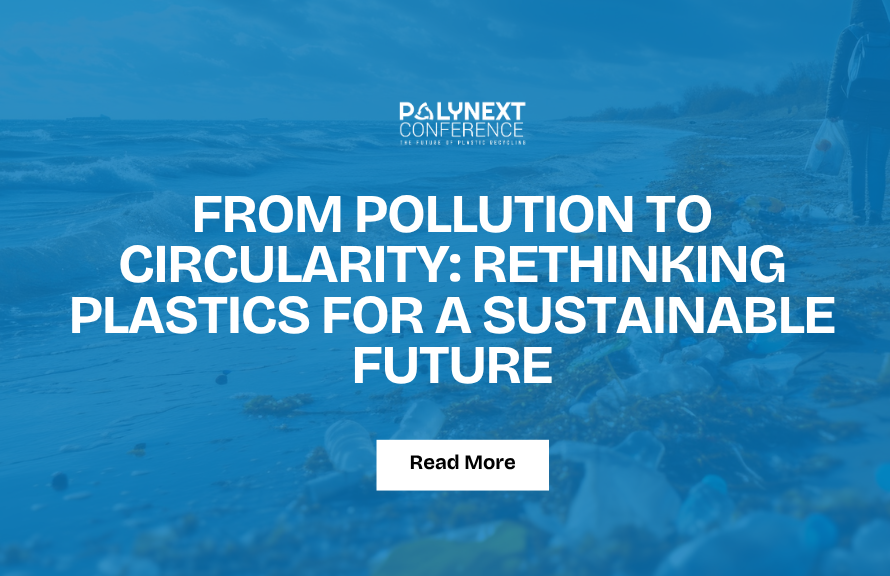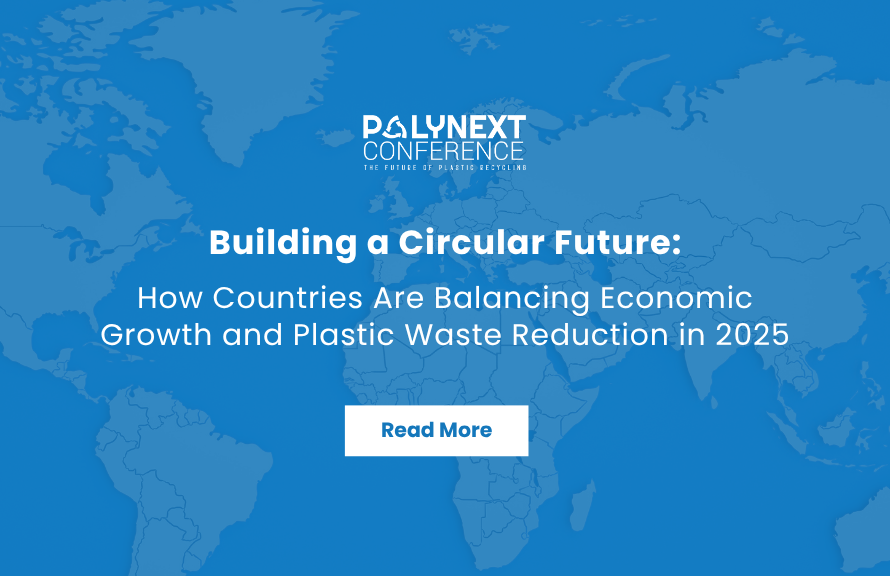Explore the latest plastic recycling innovations in 2025, from cutting-edge global projects to Middle East advances. See how AI sorting, chemical recycling, and PolyNext 2025 are shaping a sustainable, circular economy.
Plastic Recycling in 2025: A Global Shift
As the world confronts mounting plastic waste, 2025 is shaping up to be a landmark year for recycling breakthroughs. From advanced chemical processes in Asia to AI-driven sorting in the Middle East, these innovations are redefining how we manage plastic resources and move toward a circular economy.
Japan’s J Circular System: Turning Waste into Resources
In Japan, the Kawasaki-based “J Circular System” began full-scale operations in April 2025. This state-of-the-art facility processes 200 tons of municipal and industrial plastic waste daily. By combining advanced sorting, mechanical recycling, and chemical recycling, the plant converts previously incinerated plastics into high-quality recycled materials. Operating within a certified recycling plan across multiple municipalities, the facility supports resource circulation and decarbonization efforts in Japan’s metropolitan areas.
China’s 200,000-Ton Recycling Breakthrough
Across the border in China, Jieyang City now hosts the world’s first 200,000-ton-per-year recycling plant using one-step deep catalytic cracking technology. The plant can process mixed, unsorted plastics without prior classification, converting them directly into high-value chemical raw materials with a product yield exceeding 92%. By reducing sorting costs and environmental impact, this facility exemplifies China’s push toward a circular economy and reduced dependence on crude oil imports, with plans for large-scale expansion underway.
Canada’s Closed-Loop Recycling Hubs
In Canada, Alberta’s Neos facility transforms 100 tons of post-consumer plastic waste daily into renewable green condensate for petrochemical use. Alongside the upcoming Maximus complex, which will scale up to 2,000 tons per day, these projects aim to create an integrated clean technology hub. Both facilities emphasize closed-loop recycling and energy-efficient operations, diverting tens of thousands of tons of plastic from landfills while significantly lowering CO2 emissions.
Innovative Recycling in Europe and New Zealand
Europe is also advancing chemical recycling through Plastic Energy’s Dutch plant, producing TACOIL™, a recycled oil from mixed plastic waste. With an annual capacity of 20,000 tons, the facility supports Europe’s 2030 goal of fully recyclable packaging, while simultaneously reducing emissions by diverting waste from incineration. Meanwhile, in New Zealand, Aliaxis’ plastic recovery facility focuses on PVC and HDPE, processing thousands of tons annually into materials used for construction, leveraging advanced washing technology to support circular economy targets and emissions reduction.
Global Plastic Recycling Market Outlook
The global plastic recycling market, valued at USD 43.5 billion in 2025, is projected to reach USD 78.9 billion by 2033 at a CAGR of 7.72%. Growth is fueled by stricter regulations on single-use plastics, corporate sustainability commitments, and consumer demand for eco-friendly products.
Technological advances like chemical recycling and AI-driven sorting are improving efficiency and enabling recovery of previously non-recyclable plastics. At the same time, industries such as packaging, automotive, and electronics are adopting high-performance recycled materials to meet rising regulatory and market pressures.
Together, these shifts highlight how recycling is evolving into a key driver of the global circular economy.
Middle East Rising: Advanced Plastic Recycling
While these global projects showcase groundbreaking technologies, the Middle East is emerging as a major hub for plastic recycling. The region’s growth is driven by government sustainability mandates in countries such as the UAE, Saudi Arabia, and Qatar. Bee’ah in Sharjah, UAE, operates one of the largest and most technologically advanced waste management and recycling facilities in the region, focusing heavily on plastics.
Innovative approaches, including AI-driven sorting systems and robotic arms, are improving the speed and accuracy of plastic separation, while chemical recycling partnerships are being explored to manage hard-to-recycle plastics. Complementing these efforts, waste-to-energy plants such as Dubai’s facility, which processes 1.9 million tonnes of waste annually, help reduce landfill dependence while generating electricity with controlled emissions.
PolyNext 2025: Advancing Circular Economy in the Middle East
A key platform for regional collaboration is PolyNext 2025, scheduled for October 1–2, 2025, at Crowne Plaza Dubai – Deira. Organized by Next Business Media, this two-day exhibition and conference will bring together technology providers, policymakers, and industry leaders to showcase innovations in plastic recycling. The event will highlight emerging solutions in chemical recycling, AI-driven sorting, and circular economy practices, offering insights into operational strategies and regulatory frameworks. PolyNext 2025 is poised to accelerate sustainable plastic management in the Middle East.
Global and Regional Impact: Towards a Circular Future
Globally, 2025 demonstrates how mechanical and chemical recycling technologies, combined with regulatory support and innovative approaches, are transforming plastic waste management. In the Middle East, the integration of AI, robotics, and chemical recycling, alongside high-profile events like PolyNext, highlights the region’s commitment to sustainable solutions and positions it as a rising hub for circular plastic practices.
Join PolyNext Awards & Conference
.



